Professors and PhD students from IBEB participated in the 47th Annual International Conference of the IEEE Engineering in Medicine and Biology Society (EMBC), which took place from July 14–17 in Copenhagen, Denmark.
Professor Sofia Fernandes contributed to the organisation of a symposium dedicated the most up-to-date research on magnetic stimulation applications in spinal cord dysfunctions, offering an overview of studies conducted in both animal models and patients with spinal cord injuries. At the same event, she also presented her research “Perspectives on Transspinal Magnetic Stimulation in the Diagnosis and Recovery of Spinal Cord Neural Networks.”
Professor Ana Margarida Mota (supported by the Biomedicines 2025 Travel Award) presented a study exploring the use of deep learning to non-invasively predict the most aggressive molecular subtypes of breast cancer directly from tomosynthesis images. The results are promising, especially for HER2+.
Professor Anna Letournel presented a study exploring the combined use of EEG, ECG, and virtual reality in exposure therapy, demonstrating that brain activity can be reliably monitored during immersive and non-immersive tasks, establishing a promising foundation for future applications in paediatric populations with food aversion.
PhD student Duarte Oliveira-Saraiva presented a novel approach based on the 2D-Fast Fourier Transform, proposing a fast and effective method for identifying B-lines in point-of-care lung ultrasound images.
PhD student João Mendes presented a study where, using artificial intelligence, a model was developed to analyze healthy mammograms and predict the onset of breast cancer up to two years in advance.
PhD student Teresa Pereira presented the development and evaluation of biocompatible electrodes made of PDMS and silver ink for ECG signal acquisition at the index fingers, intended to be integrated into biometric recognition systems.
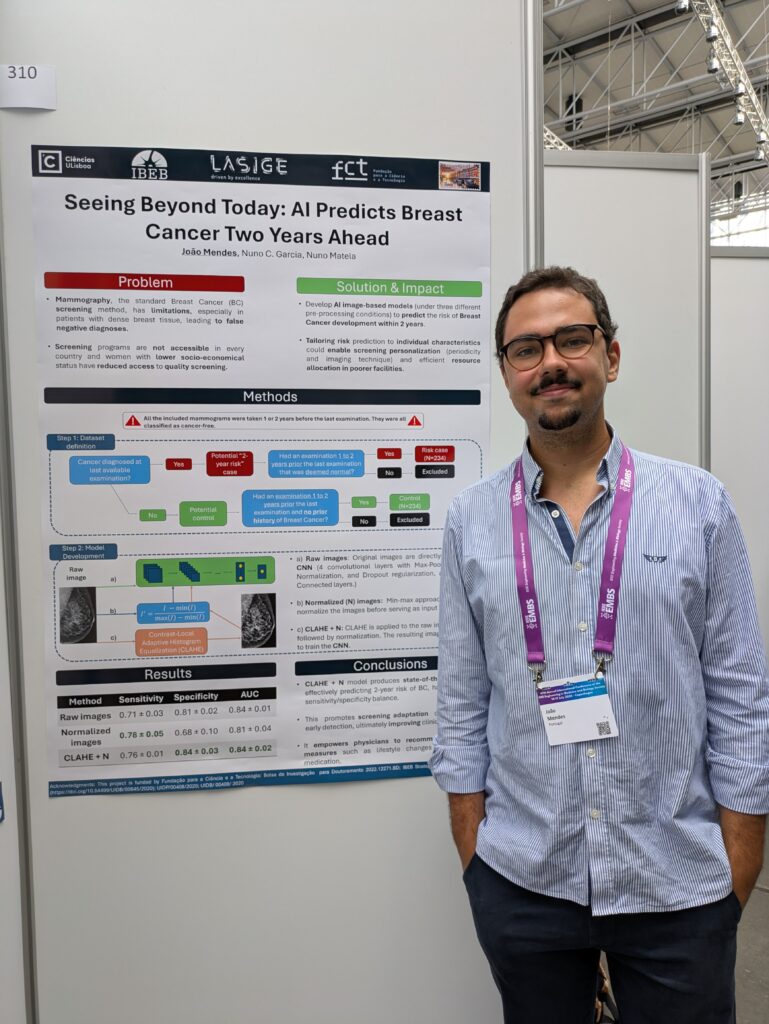
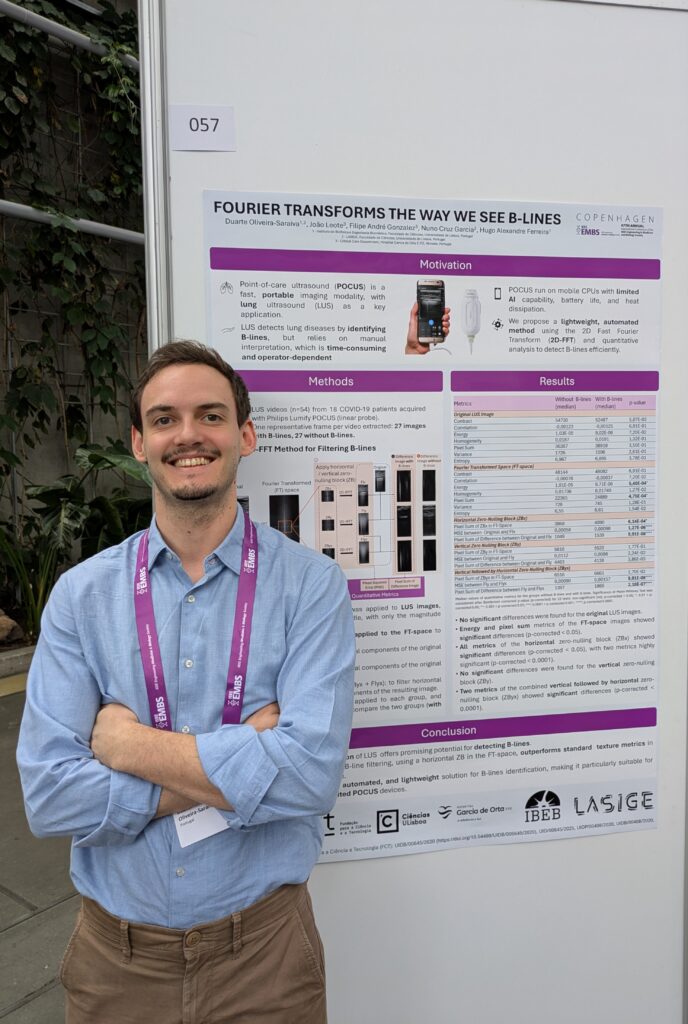
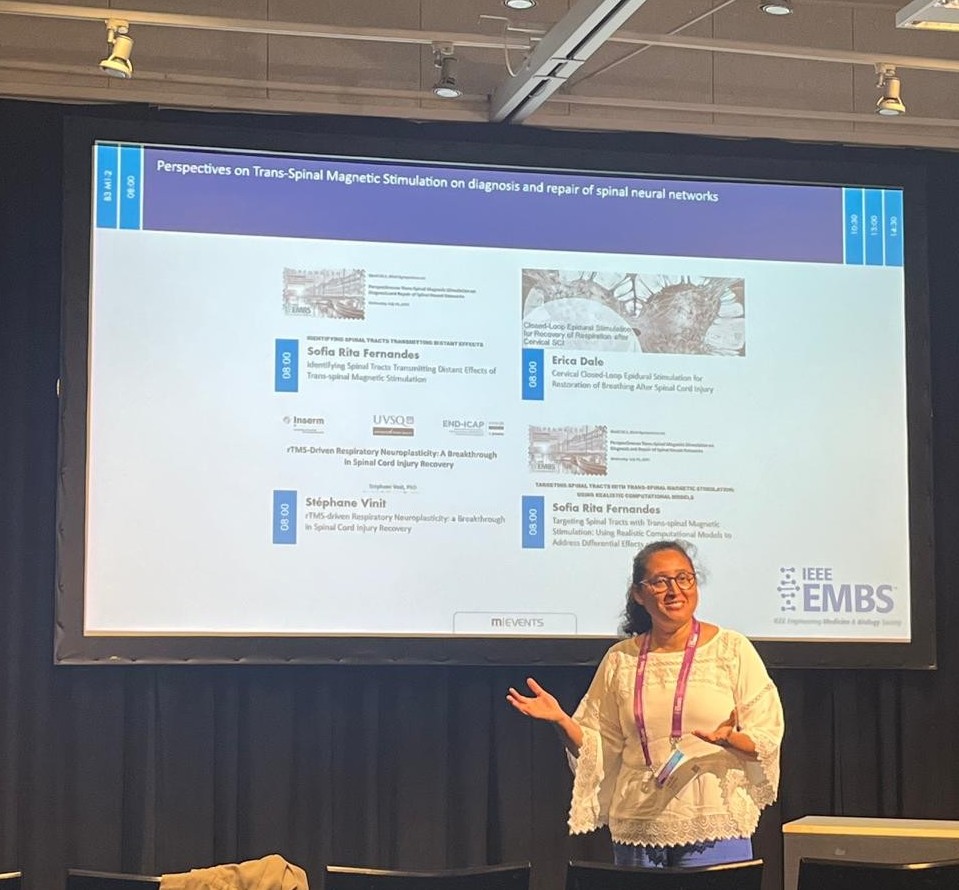
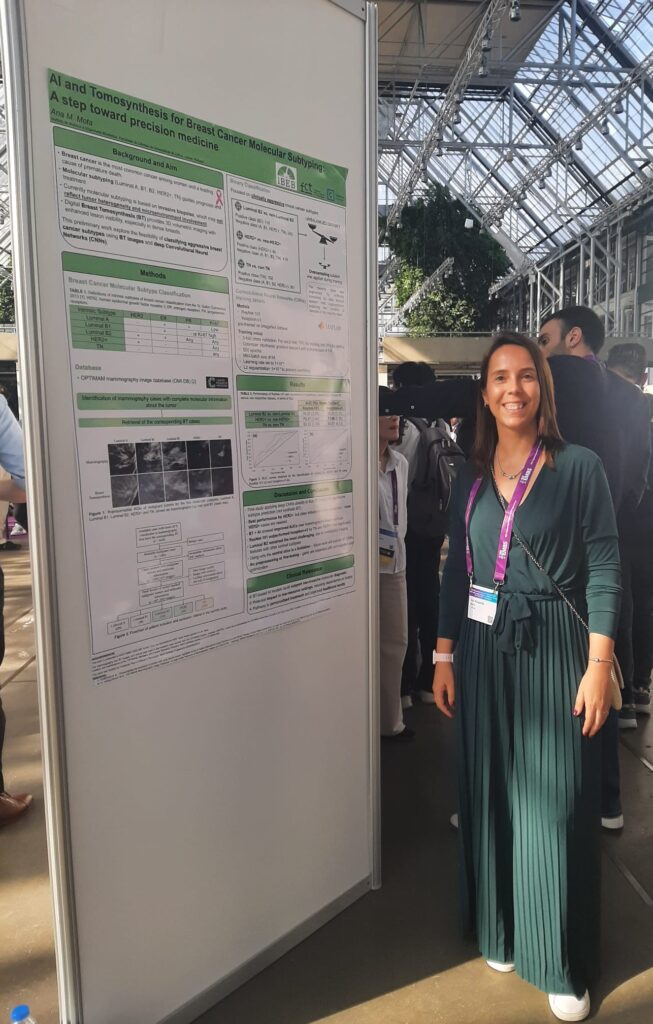
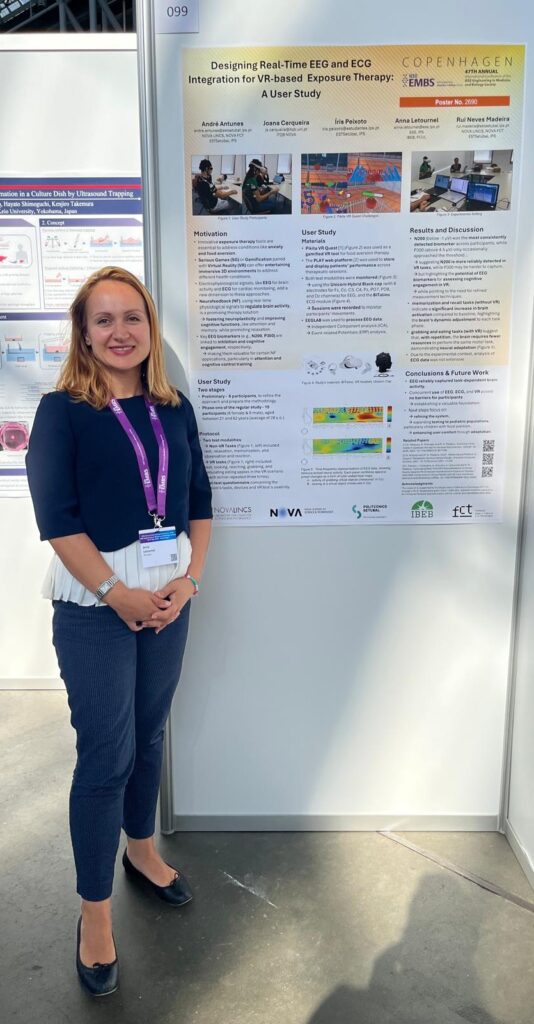
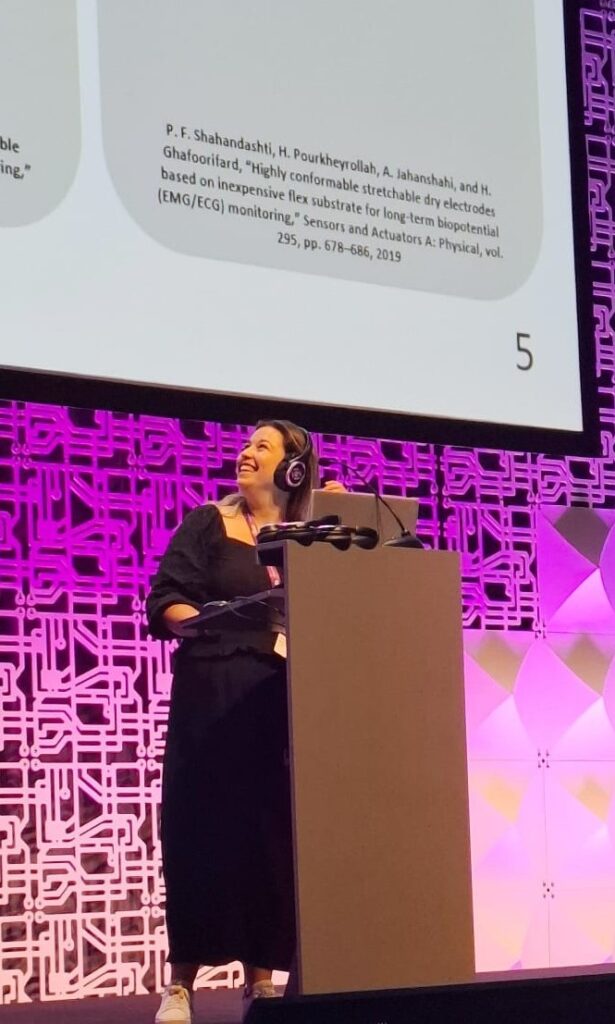
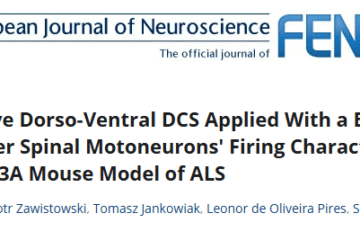


0 Comments